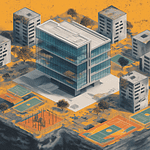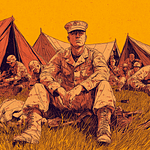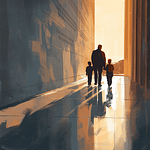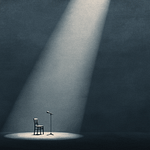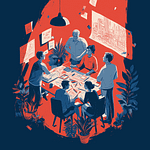There was a time in America when hard work meant something. When a person could rise on effort and grit, build a life, and know that tomorrow would be a little better than today. That was the promise — the quiet understanding that effort and opportunity together could create a fair and thriving nation.
But somewhere along the way, we broke that covenant.
For generations, capitalism was the greatest engine of social advancement the world had ever seen. It created the modern middle class, lifted families out of poverty, and rewarded those willing to build, invent, and take risk. Yet over time, greed — not growth — became the goal. Capitalism, once a tool of mobility, slowly hardened into a system of maintenance. The ladder that helped millions climb was pulled up, rung by rung, until entire generations found themselves staring at opportunity from below, wondering if it had all been a lie.
That’s where we are today.
We live in an America where young people can’t afford to buy homes, where families are crushed by the cost of childcare and healthcare, where the dream of owning something — anything — feels reserved for the few. Wages have stagnated while costs have exploded. College promises opportunity but often delivers debt. And the modern economy — full of subscriptions, short contracts, and hidden fees — has quietly stripped people of savings, turning ownership into rent and stability into subscription.
Meanwhile, our politics have devolved into two exhausted camps shouting at one another, neither willing to admit that both helped create this mess. The left blames capitalism itself, arguing that the only solution is government control. The right defends capitalism in name but often ignores its moral decay — turning a blind eye as consolidation, monopolies, and financial engineering hollow out the very principles of fair competition and shared prosperity that once defined a free market.
It’s no wonder people are angry. It’s no wonder so many feel disenfranchised, left out, and unseen. The frustration we see in the streets, in the polls, and online isn’t madness — it’s heartbreak. It’s the pain of a nation that still believes in the promise of America but no longer trusts that the system works for them.
I’ve long believed that if capitalism doesn’t remain accessible to the masses, socialism is the only other door left open. People will not remain loyal to a system that no longer serves them. And they shouldn’t have to.
The problem is not capitalism itself. The problem is what we’ve allowed it to become — an engine that serves the few instead of empowering the many. We have built an economy that rewards speculation over creation, short-term profits over long-term stewardship, and the manipulation of value over the making of it. We have forgotten that capitalism only works when the vast majority of people have a real stake in it.
So how do we fix it?
We begin by remembering that capitalism was never meant to be an ideology. It’s a tool. A powerful one — when guided by moral purpose and sound regulation. Government’s role is not to manage our money through taxation or bloated programs. Its role is to shape the incentives that encourage companies to do what’s right: to pay fairly, to invest locally, to share ownership, and to give workers a path to real participation in the wealth they help create.
We can pass laws that reward the good actors — companies that build jobs here, that treat employees as partners, that pay living wages and offer profit-sharing. We can reform our tax code to favor long-term investment in production over financial speculation. We can encourage a new generation of entrepreneurs to see ownership not as extraction, but as stewardship — a sacred responsibility to the communities that make success possible.
And just as importantly, we can rebuild our education system so that it teaches not only skills, but sovereignty — the ability to understand money, ownership, and the levers of freedom that come with financial literacy. We can teach young people that wealth is not greed, and that saving, investing, and building are acts of dignity — not privilege. We can open new doors to homeownership and cut through the layers of regulation and corporate greed that have turned the most basic dream of American life into an impossibility.
But beyond policy, we must rediscover something even more fundamental: faith in one another. Because the truth is, this divide — between left and right, rich and poor, young and old — is not really about ideology. It’s about belief. We have stopped believing that the people on the other side want the same thing we do: a fair shot, a safe community, a country where hard work still counts for something.
We can change that.
We can recognize that most Americans, regardless of politics, want the same simple things — to build a life of meaning, to provide for their family, to contribute to something greater than themselves, and to know that the rules are fair. Those aren’t Republican ideals or Democratic ideals. They’re American ideals.
If we are brave enough to see one another again, we can start to rebuild an economy that serves us all. Not through more control, but through more participation. Not through envy, but through shared responsibility. Not through anger, but through reform rooted in fairness.
Capitalism isn’t the enemy. It’s the promise — but only if we have the courage to make it work for everyone again. The government can set the stage, but we are the actors. The solution will come from leaders who choose stewardship over greed, from citizens who demand accountability with compassion, and from businesses that remember their first obligation is not to the next quarter, but to the next generation.
The great recalibration before us is not just economic. It is moral. We must restore balance to the relationship between work and reward, between freedom and fairness, between opportunity and responsibility. That balance made us the most dynamic nation on earth — and it can again.
The dream of America has not failed. We have simply forgotten the work required to sustain it. If we can reclaim that work — the hard, unglamorous labor of building systems that serve people, not the other way around — then the next century of American life can be as bold and beautiful as the first.
Because the promise was never about what we could get. It was about what we could build together.
The truth is, America doesn’t need another revolution. It needs a recalibration — a return to fairness, opportunity, and shared responsibility. Capitalism, when practiced with integrity, can still lift us all. But it requires courage — the courage to see one another again, to reward contribution, and to remember that our economy was built not just to make wealth, but to make life better.
If this episode spoke to you, I hope you’ll share it. Subscribe on Apple Podcasts, Spotify, or at justinmlewis.substack.com to join me each week as we explore how to rebuild the bonds of trust that hold this country together.
Because the dream isn’t dead — it’s just waiting for us to remember how to build it again.



